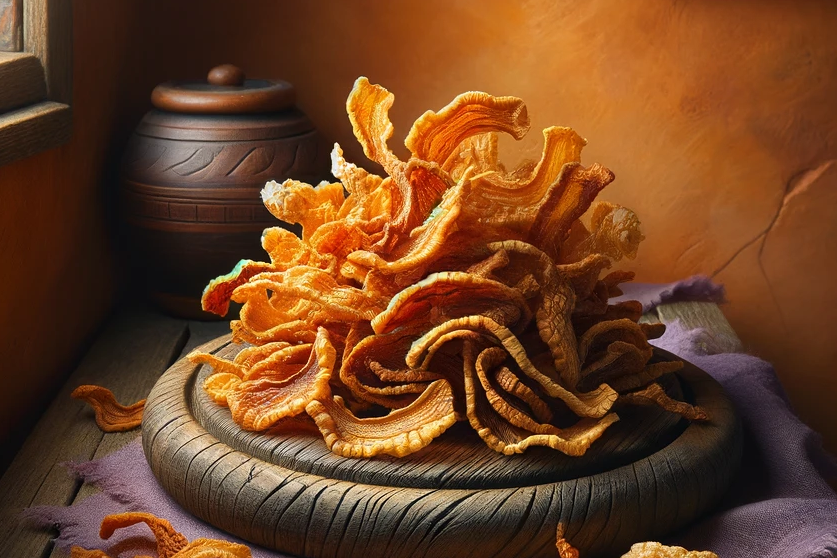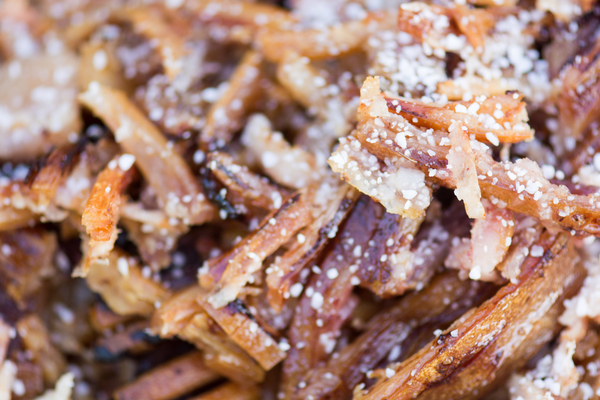Duck skin

Duck skin is the skin of ducks that is a by-product of slaughtering. Duck skin can be used raw or dried as a snack for dogs. It has some benefits for your dog's health and well-being, but also some disadvantages that you should be aware of.
Benefits of duck skin for dogs
- Duck skin is rich in protein, which is important for muscle building and cell regeneration. Protein is also an important building block for your dog's skin, hair, nails and organs.
- Duck skin also contains fat, which is an important source of energy for your dog. Fat also provides essential fatty acids, which have an anti-inflammatory effect and strengthen the immune system. Fat is also important for the absorption of fat-soluble vitamins such as A, D, E and K.
- Duck skin is a natural source of collagen, which is responsible for the elasticity and firmness of the skin and connective tissue. Collagen can also promote joint health and prevent or alleviate osteoarthritis.
- Duck skin is a tasty snack for your dog that offers him variety in his bowl. Duck skin can also serve as a reward or activity, as your dog has to chew on it. Chewing promotes dental health and prevents tartar build-up.
Disadvantages of duck skin for dogs
- Duck skin has a high fat content, which can lead to obesity and health problems such as diabetes or cardiovascular disease if consumed in excess. You should therefore make sure that you don't give your dog too much duck skin and adjust its calorie requirements accordingly.
- Duck skin can also trigger allergies or intolerances if your dog is sensitive to poultry. You should therefore always pay attention to how your dog reacts to new foods and consult a vet if there are signs of itching, diarrhea or vomiting.
- Duck skin can also contain parasites or bacteria that can harm your dog. You should therefore only buy high-quality products that have been processed hygienically. You should also make sure that you store raw duck skin in a cool place and feed it quickly or store dried duck skin in a dry place.
Duck skin can be a healthy and tasty snack for your dog if you feed it in moderation and pay attention to its digestibility. Duck skin provides your dog with many nutrients such as protein, fat and collagen, which can promote their health and well-being. However, you should also consider the possible disadvantages of duck skin such as obesity, allergies or infections and only buy high-quality products.
If you notice any signs of hypersensitivity or poisoning in your dog, you should see your vet immediately. We are not a substitute for a vet, but we try to be as accurate as possible. Every dog reacts differently and we recommend you get a second opinion or consult your vet if in doubt.
Stay healthy and take good care of your four-legged friend!😊
Similar to Duck skin
Chicken skin consists mainly of fat, which makes up between 10 and 40 percent of the total weight of the skin. The fat contains various fatty acids, which are responsible for the taste and texture...
Goosebumps have several positive effects on your dog's health: It supports the function of the skin and coat by providing them with moisture and nutrients. The amino acids tyrosine and...
Turkey skin is the skin of the turkey, which is often a by-product of slaughtering. It is sometimes sold as a snack for dogs or used as an ingredient in dog food. Turkey skin contains a lot of fat...
Rind is the thick, firm layer of skin on pigs, usually attached to some of the underlying fatty tissue. Rind is often smoked, dried or cooked to preserve it and give it more flavor. Rind can be used...



